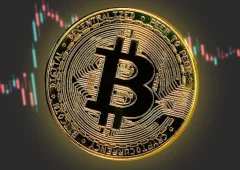Bybit Steps Into DeFi With Solana-Based Platform
16.06.2025 17:00 1 min. read Alexander Stefanov
Bybit is venturing beyond centralized trading with the upcoming launch of its decentralized exchange, Byreal, built on the Solana blockchain.
The platform will debut its testnet on June 30, with the mainnet rollout planned for later this year.
Unlike traditional DeFi platforms, Byreal aims to bring the efficiency of centralized exchanges—like fast execution and deep liquidity—into a decentralized setting. It introduces innovative mechanisms such as Request-for-Quote (RFQ) trading and Concentrated Liquidity Market Maker (CLMM) routing, both designed to protect users from MEV attacks and ensure smoother price execution.
One of its standout features is the “Reset Launch” system, which promises more equitable token distributions using tools like Smart Price Laddering and the Faishare Engine. Byreal will also offer yield strategies through its Revive Vault, initially focused on Solana-native assets like bbSOL.
Bybit CEO Ben Zhou views Byreal as part of the exchange’s broader pivot toward hybrid finance—a model that blends the control of DeFi with the usability of centralized platforms. This move distinguishes Bybit from other major exchanges focusing on Layer 2 rollouts.
The timing is notable, as decentralized trading volumes have seen a resurgence recently. Bybit, still recovering from a major security breach earlier this year, is doubling down on product innovation, including its recent expansion into traditional markets like equities and commodities.
-
1
Ripple’s Stablecoin Gains Global Reach Through Alchemy Pay Integration
18.06.2025 8:00 1 min. read -
2
ARK Invest Takes Early Profits After Circle’s Skyrocketing IPO
18.06.2025 9:00 1 min. read -
3
FSB Flags Mounting Crypto Risks as Stablecoins Tighten Grip on Finance
13.06.2025 11:00 2 min. read -
4
Crypto Market May Be in Early Stages of Multi-Year Rally, Says Real Vision CEO
21.06.2025 17:00 2 min. read -
5
Circle’s Market Cap Surges Past Its Own Stablecoin
24.06.2025 12:00 1 min. read
Weekly Recap: Key Shifts and Milestones Across the Crypto Ecosystem
The first week of July brought notable advancements in crypto infrastructure, governance, and trading.
EU Risks Falling Behind in Digital Finance, Warns Former ECB Board Member
Europe’s reluctance to embrace stablecoins and blockchain technology could erode its monetary sovereignty and marginalize the euro in the next phase of global finance, according to former European Central Bank board member Lorenzo Bini Smaghi.
Toncoin Launches UAE Golden Visa Program Through $100,000 Staking Offer
Toncoin (TON) has unveiled an exclusive partnership with the United Arab Emirates (UAE) to offer users a path to the coveted 10-year UAE Golden Visa—through crypto staking.
White House Advisor Points Out What Could Push Crypto Market to $20 trillion
Bo Hines, the U.S. President’s Chief Advisor on Digital Assets, believes that upcoming stablecoin legislation could catapult the digital asset market to unprecedented heights. In a recent statement,
-
1
Ripple’s Stablecoin Gains Global Reach Through Alchemy Pay Integration
18.06.2025 8:00 1 min. read -
2
ARK Invest Takes Early Profits After Circle’s Skyrocketing IPO
18.06.2025 9:00 1 min. read -
3
FSB Flags Mounting Crypto Risks as Stablecoins Tighten Grip on Finance
13.06.2025 11:00 2 min. read -
4
Crypto Market May Be in Early Stages of Multi-Year Rally, Says Real Vision CEO
21.06.2025 17:00 2 min. read -
5
Circle’s Market Cap Surges Past Its Own Stablecoin
24.06.2025 12:00 1 min. read


